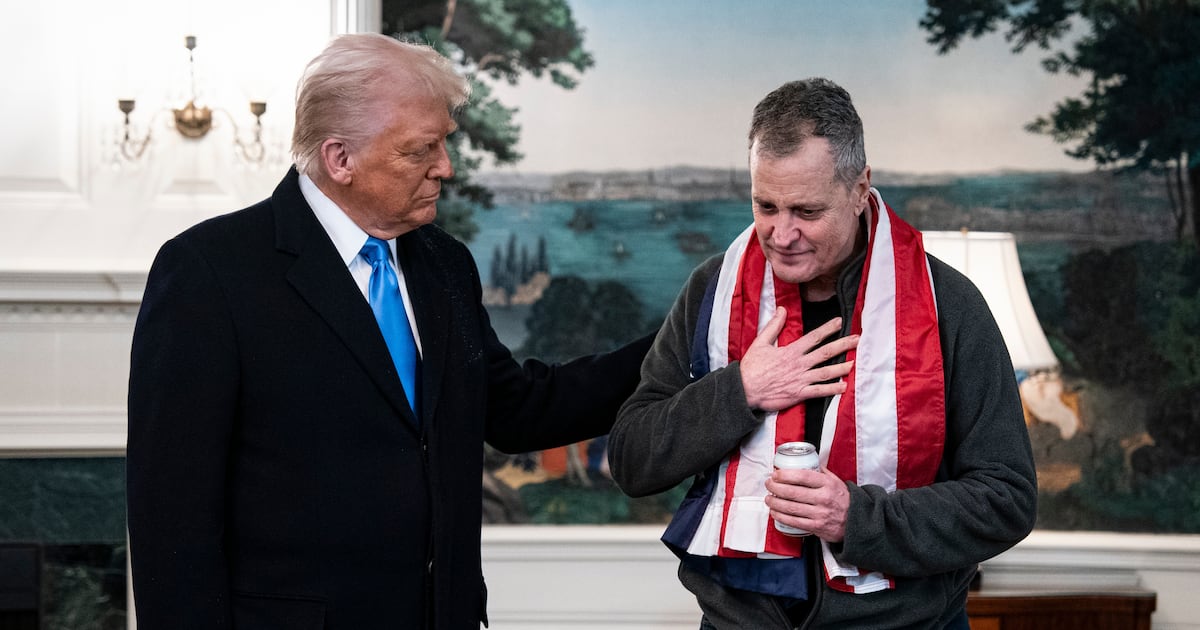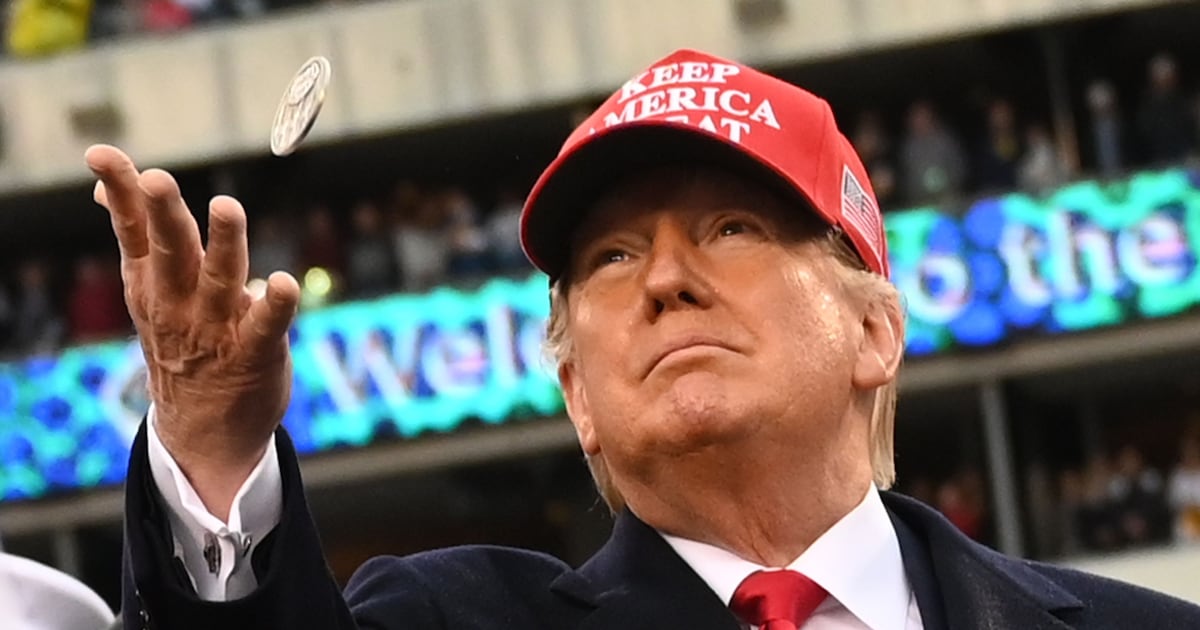Donald Trump says the U.S. military is depleted. Those who serve increasingly say they feel deflated.
Some troops said they increasingly feel drained by the rhetoric of the presidential campaign, including last night when Trump suggested that the U.S. military timed a campaign to shape the U.S. election—and that he may not accept the results of the election.
Yet again, an institution desperate to stay out of the campaign as is tasked to salute whoever wins it, found itself at the heart of political storm. And for all the attempts to stay out, the growing frustration oozed out of the hallways as comrades met Thursday morning to discuss what they heard at Wednesday’s debate — and what it means for the values they took an oath to defend.
Officially, the Pentagon will not discuss the election. Secretary of Defense Ash Carter, while appearing at a press conference with his South Korean counterpart Thursday, refused to answer even a question about nuclear policy because it was related, in part, to Wednesday’s debate. Anything even remotely cast in politics would not get an answer, Carter said.
Regardless, there was a feeling of malaise in the Pentagon on Thursday morning. Some feared that the rhetoric of the debate could lead to violence after the election.
When asked if he would accept the election’s results, Trump said, “What I’m saying is that I will tell you at the time. I'll keep you in suspense.”
Many here have served in countries where there is no guarantee of a peaceful transition in power. And in Iraq and Afghanistan, their comrades died to bring stability to allow the introduction of democratic practices.Even those who have never deployed to the war zones has studied at military colleges about other countries where nations erupted into violence because the someone rejected the results of an election.
Some troops said they were worried that Trump’s unwillingness to accept the election results could bring the kind of violence to the United States that U.S. troops have deployed overseas to stop.
Still others turned to the Uniformed Code of Military Justice for a means to stop the use of language that could bring similar outcomes to the United States:
“In my mind, this is sedition,” one Air Force major explained. “I wouldn’t be allowed to say it.”
Article 94 of UCMJ defines sedition, in part, as: Someone with the “intent to usurp or override lawful military authority, refuses, in concert with any other person, to obey orders or otherwise do his duty or creates any violence or disturbance is guilty of mutiny.”
Trump said that the U.S. military started the campaign to liberate the northern Iraqi city of Mosul from the self-proclaimed Islamic State to help Democratic presidential hopeful Hillary Clinton win on November 8.
“The only reason they did it is because she is running for the office of president,” he said. “And they want to look tough. They want to look good.”
The Iraqis timed the start, not the U.S., officials have repeatedly said publicly. Privately, some noted that the U.S. military has a bad track record of predicting outcomes in Mosul. The U.S. was caught off guard when ISIS troops stormed the city June 10, 2014 and met Iraqi forces who fled. And the U.S. military once said the offensive to claim Iraq’s second largest city would begin in the spring of 2015, and when that did not happen, the fall of that year. Neither timeframe was correct.
For a building filled with veterans of the 2003 invasion, the idea that the U.S. could shape Iraqi decision making was laughable.
There are at least 45,000 Iraqi Security Forces and Kurdish peshmerga forces participating in the Mosul campaign, compared to a few hundred U.S. troops. The bulk of the U.S. effort has been through airstrikes in and around ISIS assets in Mosul.
“We have never made the Iraqis do anything we want,” one Army colonel complained. “That is why we keep going back there.”
Clinton, in response to Trump’s claim, said: “I'm just am amazed that he seems to think the Iraqi government and our allies and everybody else launched the attack on Mosul to help me in this election, but that’s how Donald thinks, you know, he always is looking for some conspiracy.”
And Trump’s claim challenged a repeated claim by the U.S. military that it was not in the lead of the campaign for Mosul, but rather in support of it. Moreover, such talk took away from the military success on the battlefield; Iraqi Prime Minister Haider al Abadi said the campaign for Mosul is ahead of schedule.
Not all troops agree about what was said at the debate as the U.S. military is as varied as the nation it serves. Some said they refused to watch the debate, that they supported Trump or that they did not want to discuss the election.
But it is not the first time the election has set off fury of anxiety within the Pentagon. As early as late last year, there were some commanders suggesting they would quit before serving under President Trump, at that time because he said he would order them to commit war crimes like killing terrorists’ innocent families.
Marine Gen. Joseph Dunford, the chairman of the Joint Chiefs of Staff, has repeatedly urged the military to not speak about political matters. Emails reminding the troops of his order arrive regularly. And for the most part, the military obliges—except in the hours after the presidential debate when, some feel, the very values they took an oath to defend are under attack.
At that point, it feels personal, some said.
“How many days until the election?” one Army colonel asked. “This is dangerous.”






